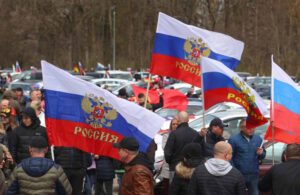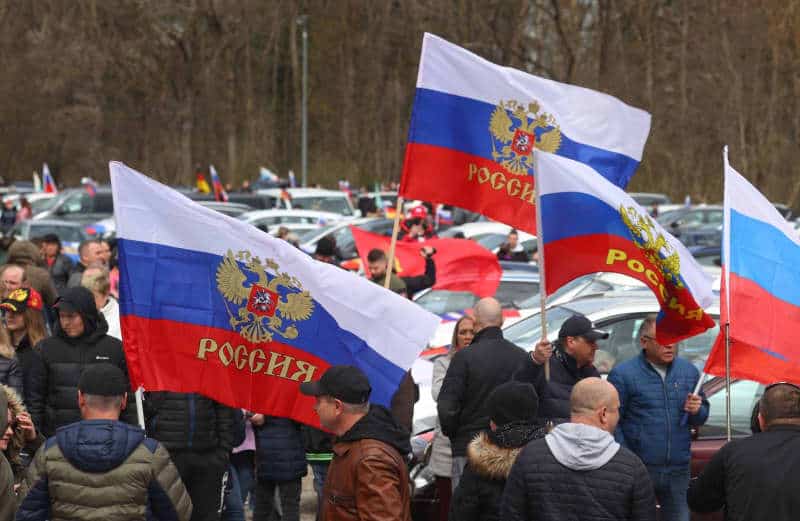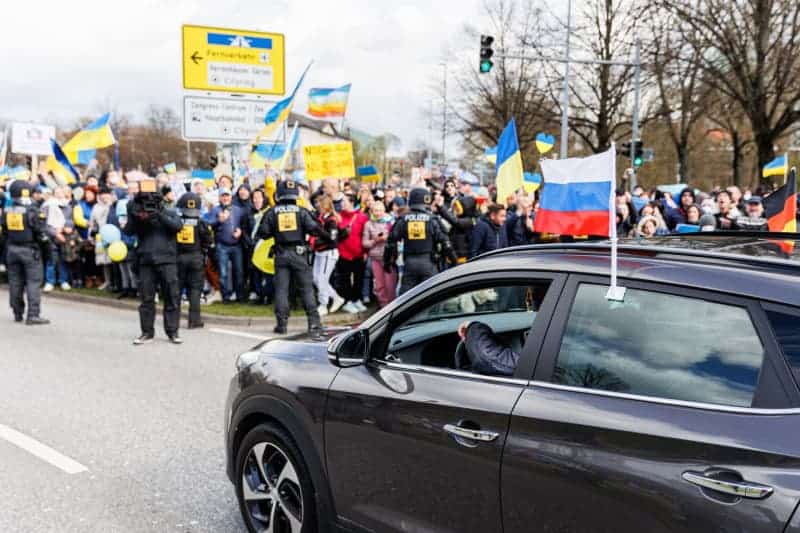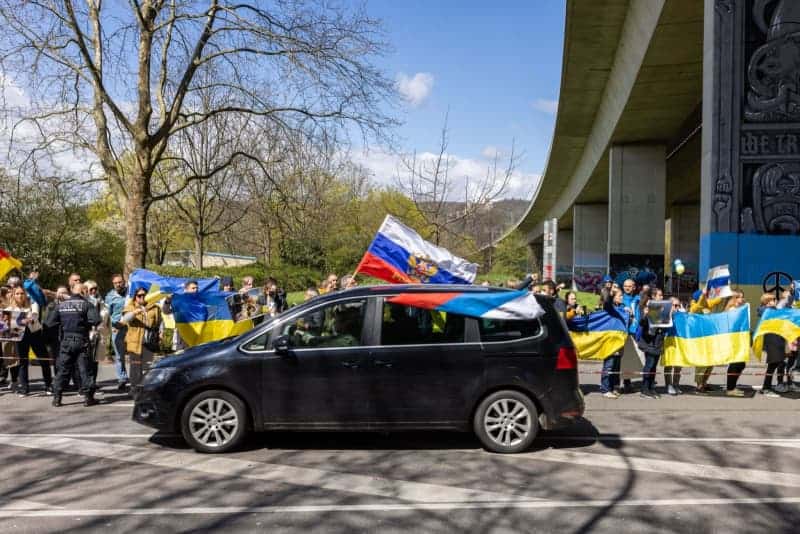
DPA

About 2,500 people were expected at a pair of pro-Russian events in Germany on Sunday, with organizers saying they are fighting against Russophobia, while onlookers worry about overt signs of support for the invasion of Ukraine.
About 2,000 people were expected at Frankfurt for a rally billed as being “against harassment and discrimination of Russian-speaking residents” and “against war – for peace.”
Organizers had hoped to be accompanied by a convoy of 700 cars, but the city had ruled that out of order.
Further north, in Hanover, about 600 people with 350 cars gathered for a separate pro-Russia convoy. Many participants were waving both German and Russian flags. However, the start was delayed because police had decided that the cars’ bonnets were not allowed to be covered by flags.
Germany has a large Russian-speaking population and several incidents of anti-Russian harassment have been reported since Russia began its invasion of Ukraine on February 24.
However, the recent move towards pro-Russia convoys has left Germans feeling uneasy, with many questioning whether they are not thinly disguised shows of support for the war. A similar convoy in Berlin on April 3 upset many, coming as it did on the same day as allegations of Russian war crimes in Bucha, Ukraine, were released.
Already, about 850 people had gathered for a counterdemonstration in Hanover. In Frankfurt, multiple smaller groups had gathered to protest the Russian invasion. Many participants were waving banners urging for Russia to be stopped and for an end to imports of Russian gas.
“We’re not going to leave Frankfurt to the war supporters,” urged one group of counterdemonstrators.
City organizers also set ground rules for the pro-Russia protests. Participants have been ordered not to display the letters V and Z, which have become associated with support for the invasion. A similar ban has been put on the black-and-orange ribbon of Saint George.
Participants have also been ordered not to publicly support the war or to denounce Ukraine, its people or victims of the Russian invasion.
The display of Russian paraphernalia at the events is drawing criticism from Ukraine. The country’s ambassador to Berlin, Andriy Melnyk, says he has called for a ban on the display of the Russian flag and other such symbols at the demonstrations.
Allowing them to be shown is a “glamourization of barbaric aggression,” he told dpa, saying that their display had little to do with freedom of expression.
“I simply can’t understand how the German polity is turning a blind eye to this,” he said. “If you’re demonstrating with a Russian flag, then you are automatically supporting that state, which is carrying out a war of destruction against Ukraine and our civilian population.”
He said he was in the midst of “very concrete discussions” with the German government about his request.




Recommended Comments
There are no comments to display.